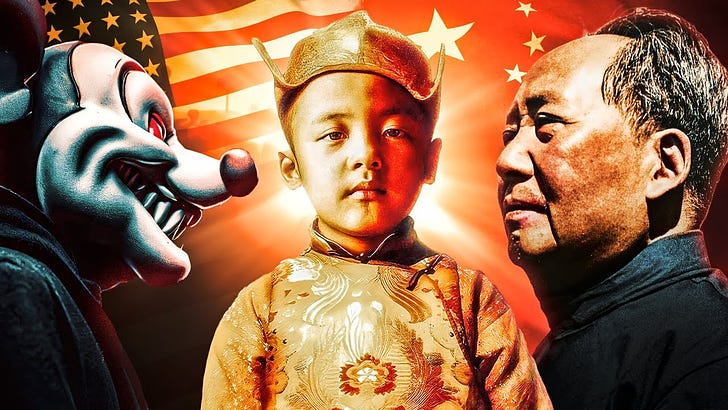The Martin Scorsese Movie Disney and China Don’t Want You to See
Michael Eisner’s total capitulation to China over Scorsese's film would have a profound impact on the global entertainment landscape for years to come.
Few directors in Hollywood have more power than Martin Scorsese, the Oscar-winning director of box office hits "Goodfellas," "Casino," "The Departed," and "The Wolf of Wall Street."
But even the legendary filmmaker lacked the clout to save the fate of his movie "Kundun" (1997) when the Chinese Communist Party (CCP) came knocking on Disney’s door.
The film is probably one most readers have never heard of, even though it was nominated for four Academy Awards and included the legendary Mr. Scorsese. A historical drama written by Melissa Mathison, "Kundun" explores the life of the young Dalai Lama, who in 1950 saw his homeland of Tibet invaded by the CCP.
Ms. Mathison conceived the project after meeting the Dalai Lama in 1990, and though she had concerns that Hollywood would not be interested in such a film, she landed a break when she convinced Mr. Scorsese to direct the film.
“I’m not saying he wants to do it, but I know he’s going to get it,” Ms. Mathison recalled thinking. “I knew he’d understand the society, the moral code, the journey, and the spirituality of it,” she said in the documentary "In Search of Kundun with Martin Scorsese."
Disney eventually agreed to distribute the film, which was given a $28 million budget. But China had other ideas.
Tibet, along with Taiwan and Tiananmen, is among the forbidden Three Ts—the issues considered most contentious by the CCP. So with China becoming an emerging global power in the 1990s, the CCP decided to flex its muscle and attempted to nix the project.
Two days into the production of "Kundun" in 1996, a representative from the Chinese Embassy approached Disney's chief strategic officer, Lawrence Murphy.
“You started shooting a film in Morocco about the Dalai Lama, called 'Kundun,'” said the diplomat, who went on to explain that Beijing had concerns with the film’s subject matter.
'Play by China’s Rules' … or Else
At the time, Mr. Murphy hadn’t even heard of the film. But it would soon become clear that the CCP wanted the shooting of "Kundun" shut down. Why Beijing would want the movie censored is obvious. "Kundun" describes atrocities China’s communist regime committed in the 1950s following its invasion of the Himalayan country.
“The Chinese have bombed the monastery of Lithang. It has been destroyed,” an adviser tells the Dalai Lama at one point in the movie. “Nuns and monks are made to fornicate in the streets. They put guns in the hands of Khumba children, and force the child to kill the parents.”
While the description is horrifying, even more moving is the scene in which an elderly Tibetan woman tearfully and frantically insists she is “happy and prosperous under the Chinese Communist Party.”
This is not exactly flattering stuff for the CCP, any more than "Schindler’s List" is for the Nazis. Yet history is not always pretty.
In any event, the CCP’s decision to lean on the film left Disney CEO Michael Eisner in a pickle.
If Mr. Eisner shut down the film, he’d anger Mr. Scorsese and look weak for caving to the CCP. If he proceeded with production, he risked losing Disney’s commercial and manufacturing foothold in China, as well as the 1.4 billion potential consumers.
So Mr. Eisner opted for a third way.
Keep reading with a 7-day free trial
Subscribe to The Take (by Jon Miltimore) to keep reading this post and get 7 days of free access to the full post archives.



